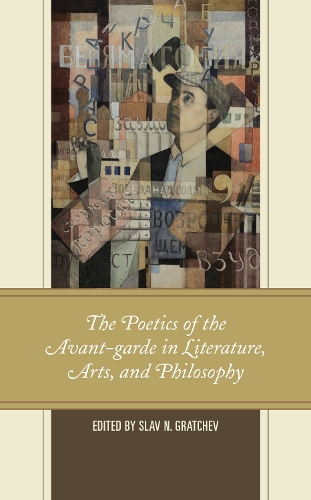
The Poetics of the Avant-garde in Literature, Arts, and Philosophy
(Hardback)
Publishing Details
The Poetics of the Avant-garde in Literature, Arts, and Philosophy
By (Author) Slav N. Gratchev
Contributions by Olga Burenina-Petrova
Contributions by Irina Evdokimova
Contributions by Michael Eskin
Contributions by Ida Day
Contributions by Norbert Francis
Contributions by Slav N. Gratchev
Contributions by Tim Harte
Contributions by Mark Konecny
Contributions by Bettina Kmmerling-Meibauer
Bloomsbury Publishing PLC
Lexington Books
5th October 2020
United States
Classifications
Professional and Scholarly
Non Fiction
The arts: general topics
Philosophy: aesthetics
700.411
Physical Properties
Hardback
246
Width 158mm, Height 230mm, Spine 22mm
585g
Description
The Poetics of the Avant-garde in Literature, Arts, and Philosophy presents a range of chapters written by a highly international group of scholars from disciplines such as literary studies, arts, theatre, and philosophy to analyze the ambitions of avant-garde artists. Together, these essays highlight the interdisciplinary scope of the historic avant-garde and the interconnected of its artists.
Contributors analyze topics such as abstraction and estrangement across the arts, the imaginary dialogue between Lev Yakubinsky and Mikhail Bakhtin, the problem of the masculine ethos in the Russian avant-garde, the transformation of barefoot dancing, Kazimir Malevichs avant-garde poetic experimentations, the ecological imagination of the Polish avant-garde, science-fiction in the Russian avant-garde cinema, and the almost forgotten history of the avant-garde childrens literature in Germany. The chapters in this collection open a new critical discourse about the avant-garde movement in Europe and reshape contemporary understandings of it.
Reviews
With a brief nod to the broadly international and interdisciplinary nature of the avant-garde as a unifying factor, the editor Slav N. Gratchev devotes the volume's introduction to a summary of the individual chapters without proposing an overarching structure to pull them together. This serves to emphasize the diffuse nature of the avant-garde as a tenuous assemblage of topics with the editor as more bricoleur than conductor. The twelve essays in the volume thus work as individual case histories with a tendency to examine somewhat narrow swaths of the literary, cultural, and philosophical landscape that comprised the Russian and East-European avant-garde. This degree of focus frequently makes this book a valuable guide to specific corners and niches of the avant-garde that contribute to the movement's distinctiveness. The insights offered by a more microscopic approach to the avant-garde are evident in a number of the volume's chapters.
-- "The Russian Review"Author Bio
Slav N. Gratchev is associate professor of Spanish at Marshall University.
